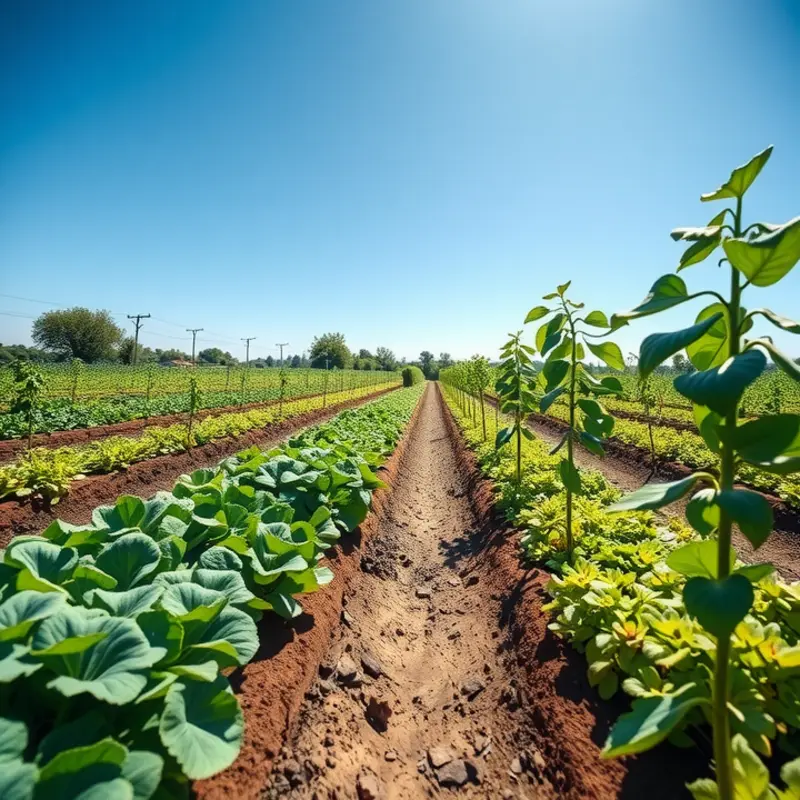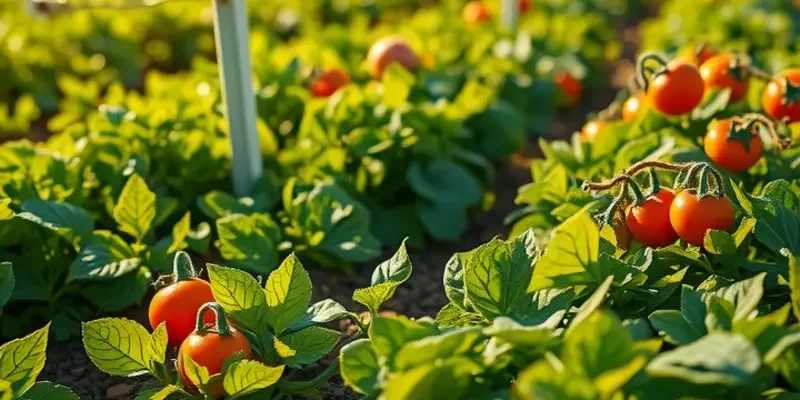Choosing a sustainable diet can be both fulfilling and beneficial for the planet. With growing awareness about climate change and health, many people are exploring ways to eat that contribute positively to their well-being and that of the Earth. This guide provides clear insights into sustainable diets, clarifying current trends while offering practical suggestions to foster mindful eating habits. Delve into the principles of sustainable eating and learn how to make choices that are not only good for you but also for future generations.
Understanding Sustainable Diets

Sustainable diets aim to reconcile the need for nutrition with reducing environmental impact and ethical consciousness. A pivotal aspect of sustainability is its focus on maintaining natural resources while ensuring food security for future generations.
Nutrition and Sustainable Choices
The principles of sustainable eating often prioritize whole, minimally processed foods. These not only offer higher nutritional value but also generally require fewer resources to produce. Diets rich in fruits, vegetables, whole grains, nuts, and seeds provide essential nutrients with less environmental burden compared to resource-intensive animal products.
Environmental Impact
Dietary choices significantly affect our planet. Plant-based diets, for example, have a smaller ecological footprint, requiring less land and water and generating lower greenhouse gas emissions compared to meat-heavy diets. Opting for locally sourced foods further reduces carbon footprints by minimizing transportation needs. Taking steps towards using renewable energy in food production can also contribute to a more sustainable system.
Ethical Considerations
Ethical eating involves understanding the impact of food production on both humans and animals. It encompasses fair treatment of workers, humane animal treatment, and supporting fair-trade practices. Sustainable diets encourage consumers to consider these factors, promoting choices that are both environmentally and socially responsible.
Different Diets, Shared Principles
Various diets embody the principles of sustainability to different extents. A plant-based diet focuses on using less energy and water, reflecting lower greenhouse gas emissions. The Mediterranean diet, rich in legumes and whole grains, aligns closely with these principles as well. You can explore how adaptable these diets can be for different preferences here.
Addressing Food Waste
Food waste reduction is a significant factor in sustainable diets. Each year, a considerable portion of food produced goes uneaten. This waste represents not only the loss of the food itself but also all resources used in its production. Planning meals, buying only necessary quantities, and creatively using leftovers can drastically cut down waste.
Informed Consumption Choices
Being informed about food sources and production methods empowers consumers to make better choices. Labels such as organic, fair-trade, and non-GMO provide insight into the sustainability of your purchases. However, critical assessment of these labels is essential, ensuring they align with genuine sustainable practices.
Understanding sustainable diets involves more than just the food on your plate. It’s about considering the broader narrative of food production, consumption, and disposal. By prioritizing nutrition, environmental impact, and ethical considerations, individuals can contribute to a more sustainable future.
Practical Steps to Implement a Sustainable Diet

Adopting a sustainable diet calls for deliberate, daily choices that prioritize both planetary health and individual well-being. Achieving this begins with thoughtful meal planning. Start by creating weekly menus that emphasize plant-based foods. This approach not only reduces your carbon footprint but also encourages diversity in your diet, leading to better health outcomes.
When selecting ingredients, opt for locally sourced produce. Buying local not only minimizes the environmental impact associated with transporting goods but also supports your community’s farmers. Explore farmers markets or participate in Community Supported Agriculture (CSA) programs to gain access to fresh and seasonal items. Seasonal produce is usually less expensive and requires fewer resources to grow and transport.
Reducing food waste is another crucial step. Planning meals around current pantry items ensures older ingredients get used first. Embrace leftovers, creatively repurposing them into new dishes rather than discarding them. Composting non-edible food scraps can enrich your garden soil, feeding any homegrown produce you nurture.
While grocery shopping, make mindful choices by studying food labels. Look for certifications that indicate sustainable practices, such as organic or fair-trade logos. Avoid products with excessive packaging by choosing bulk items, thereby cutting down on single-use plastics.
Growing your own herbs and vegetables, even in small spaces, enhances sustainability. A windowsill herb garden can provide fresh, pesticide-free flavors year-round. For those with more space, planting a vegetable garden helps you connect with the food supply chain on a personal level.
Gradually adapting these practices can significantly impact your ecological footprint. Recognizing the synergy between dietary habits and environmental health fosters more conscientious choices. For recipes that incorporate sustainable ingredients, the Mediterranean chickpea salad can be a delicious example of how to enjoy the bounty of local and seasonal produce.
Transforming your diet into a sustainable one is not about perfection. It’s about consistent small shifts that lead to lasting change. This flexibility not only makes the process manageable but also enhances your relationship with the planet and your community.
Final words
Embracing a sustainable diet goes beyond just a trend; it’s a commitment to personal health and the well-being of our planet. Sustainable eating enables us to make informed choices that honor our environment and foster a healthier lifestyle. By exploring various options—from plant-based diets to supporting local farms—you can find a sustainable eating practice that fits your values and lifestyle. Remember, each small change contributes to a larger impact. Start your journey towards sustainability in the kitchen today.








